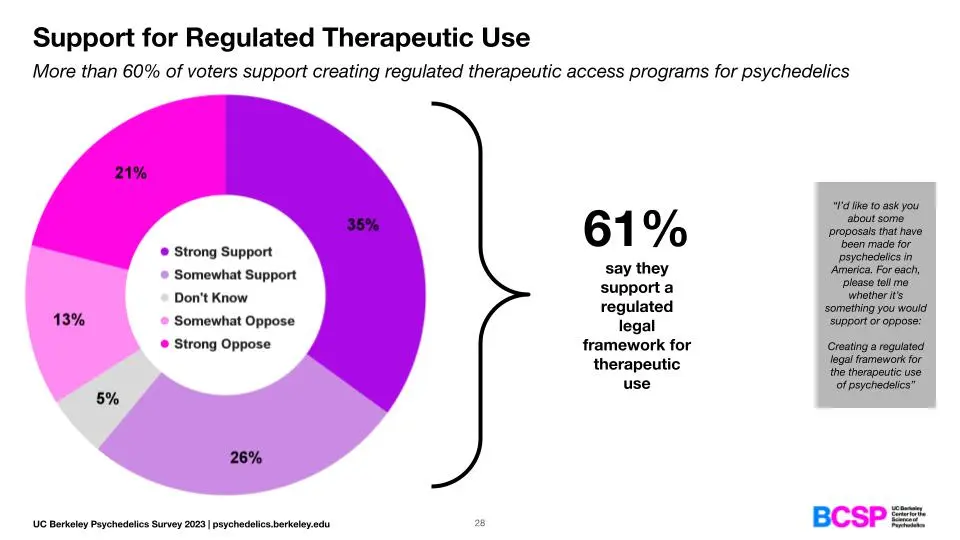THANK YOU!
We sincerely appreciate your generous donation to Entheology Project Inc. As a 508(c)(1)(a) non-profit religious organization, your donation is tax deductible. You will receive an email confirmation for your records, which can be used for tax purposes. Your support helps us continue our mission and make a meaningful impact!
Billing Information
Your credit card will be billed under "Entheology Project Inc." with the description "Donation." If you have any questions or need further assistance, please do not hesitate to contact us. Thank you once again for your support!
Best Regards,
EP Support
info@entheo.info
Looks like there was a problem processing donation.
Understanding Public Awareness and Perceptions of Entheogens
By Rev

Insights from the UC Berkeley Psychedelics Survey
The emergence of new medical treatments often raises public curiosity and prompts in-depth research and discussions. The recent interest in psychedelic substances for therapeutic purposes is no exception. The UC Berkeley Psychedelics Survey set out to explore public awareness and perception surrounding these substances among American registered voters, revealing some enlightening trends.
Psychedelics, once largely associated with counter-culture and illicit use, are now gaining mainstream recognition for their potential mental health benefits. However, according to the survey, while nearly half (47%) of voters reported recently hearing about psychedelics, awareness varies across demographics. Specifically, African American voters were less likely to have heard about these substances, indicating a need to address information disparity and extend awareness campaigns to this group.
As awareness grows, so too does the support for policy reforms concerning psychedelics. The survey found a majority (61%) of American voters are in favor of legalizing regulated therapeutic access to these substances. Additionally, over half of the voters (56%) expressed their backing for FDA approval of psychedelic treatments. These results suggest that many Americans are ready to embrace psychedelics as legitimate medical treatments, as long as they are properly researched and regulated.
However, this acceptance of psychedelics for therapeutic use does not equate to a blanket approval of their societal impact. Even though many voters support policy changes, a large portion does not perceive psychedelics as “good for society” (61%) or “something for people like me” (69%). These figures underline the complexity of public perception towards psychedelics and emphasize the need for further education about these substances and their potential applications.
When it comes to information sources about psychedelics, voters showed high levels of trust in professionals like nurses, scientific researchers, doctors, and psychiatrists. The FDA, however, had a more divided reception, with only 56% considering it “very” or “somewhat trustworthy”. This underlines the necessity for transparent and reliable communication from regulatory bodies about the benefits and risks associated with psychedelic therapies.
In summary, the UC Berkeley Psychedelics Survey sheds light on the shifting attitudes towards psychedelics among American registered voters. While acceptance of their therapeutic use is on the rise, so too is the need for comprehensive education and trustworthy information. Addressing these needs will help foster informed conversations and policies regarding psychedelics, bringing us closer to harnessing their potential for mental health treatment.
Disclaimer: The information in this article is based on the UC Berkeley Psychedelics Survey and does not constitute personal advice or endorsement. For personalized information and guidance regarding psychedelics, consult with healthcare professionals and trusted sources.
This document was generated by MushGPT using the following references:
- https://psychedelics.berkeley.edu/bcsp-first-study-results/
- Kruger_2022_JPD_Psychedelic_Knowledge.pd…, p. 2, pos. 130



 Your payment is protected
Your payment is protected